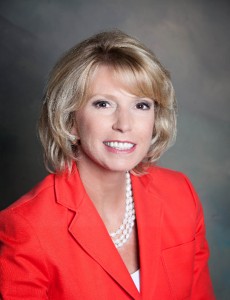What does high-stakes international diplomacy have to do with meeting planning? A lot, as it turns out.
Meet Pamela Eyring, owner and president of The Protocol School of Washington, a nationally accredited educational institution that offers international protocol, cross-cultural awareness, business etiquette and image training for business professionals and, increasingly, meeting planners of top organizations that perform on a global stage.
“Meeting planners don’t have to be planning government events--protocol is not just for government,” said Eyring, who started her career as a clerk stenographer for the U.S. Air Force and worked her way up the ladder to chief of protocol. “It takes their meetings and events to the next level. As meeting and event planners we tend to concentrate on production. Protocol focuses on the people, the VIPs and the sponsors.”
After having a leading protocol role for high-profile events that have included change-of-command ceremonies, receptions for heads of states, including the U.S. president and presidents of other countries, and even the Dayton Peace Accords, Eyring left the Air Force and enrolled in The Protocol School of Washington. After graduating, she eventually bought the company.
According to Eyring, details not to be overlooked when dealing with international attendees and officials are any honorifics that should be applied, how to “rank” people for seating purposes and precedence, how to appoint an escort or point of contact for them, and what information should be shared with which individuals.
“That’s a big part of our courses--cross-cultural or intercultural communication, and etiquette,” Eyring said. “How do you schedule that meeting? What do you need to be aware of from their cultural perspective?”
Eyring said her company is currently doing a lot of training in the Persian Gulf region and other areas of the Middle East.
Eyring described the U.S. as “the second-most casual country in the world,” after Australia, which can cause a cultural disconnect when dealing with people from other nations. This casualness combines with a very direct style when it comes to business, however.
“Americans are very task based,” she said. “We have to switch our communication style in order to build our relationships with people from other countries. It matters and it works.”
In the end, protocol is really but a critical tool in facilitating international dialogue, and educating people about its importance is what makes Eyring tick.
“I have a love for training, and I have a love for planning,” Eyring said. “It’s worked very nicely together. It’s a great career.”







